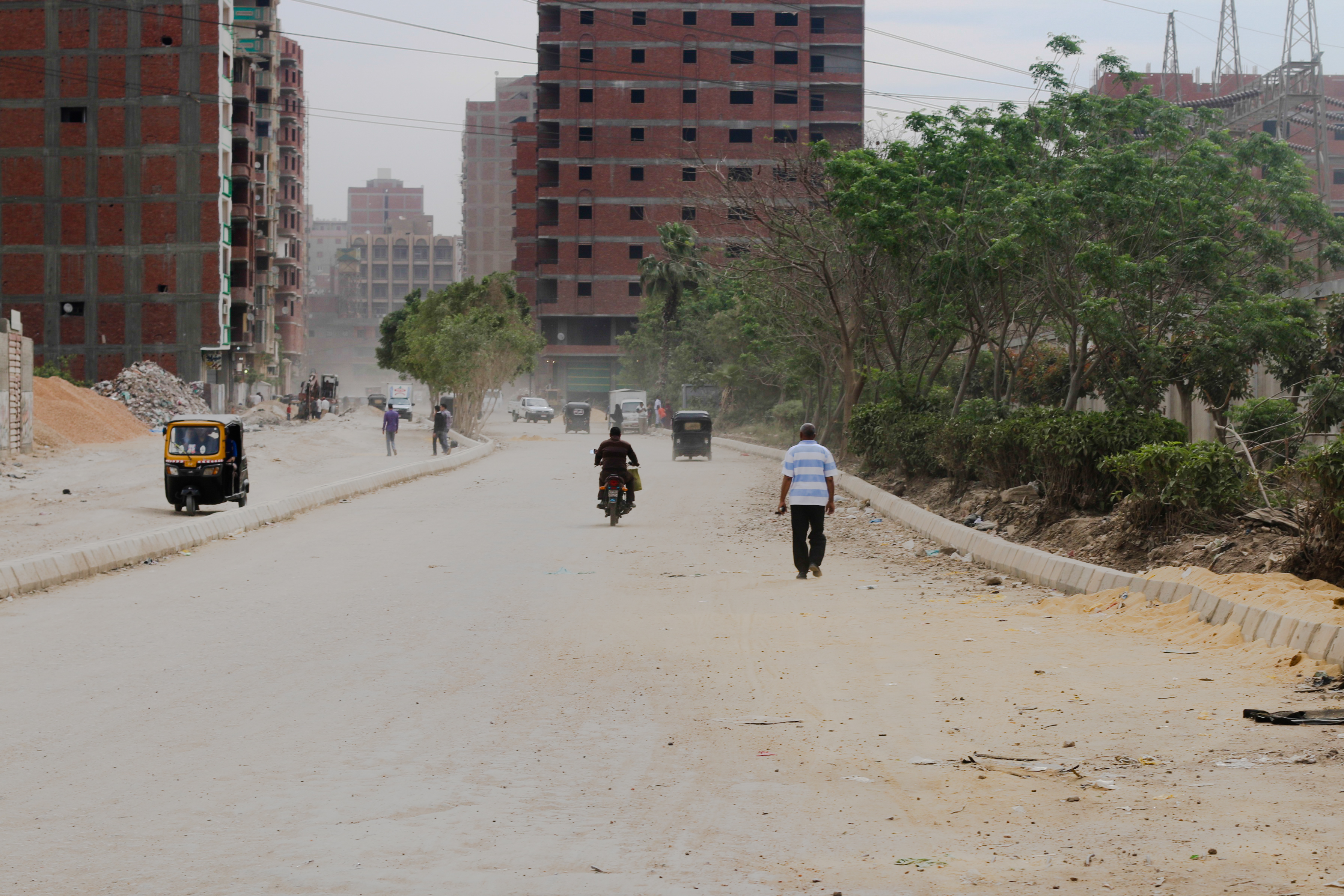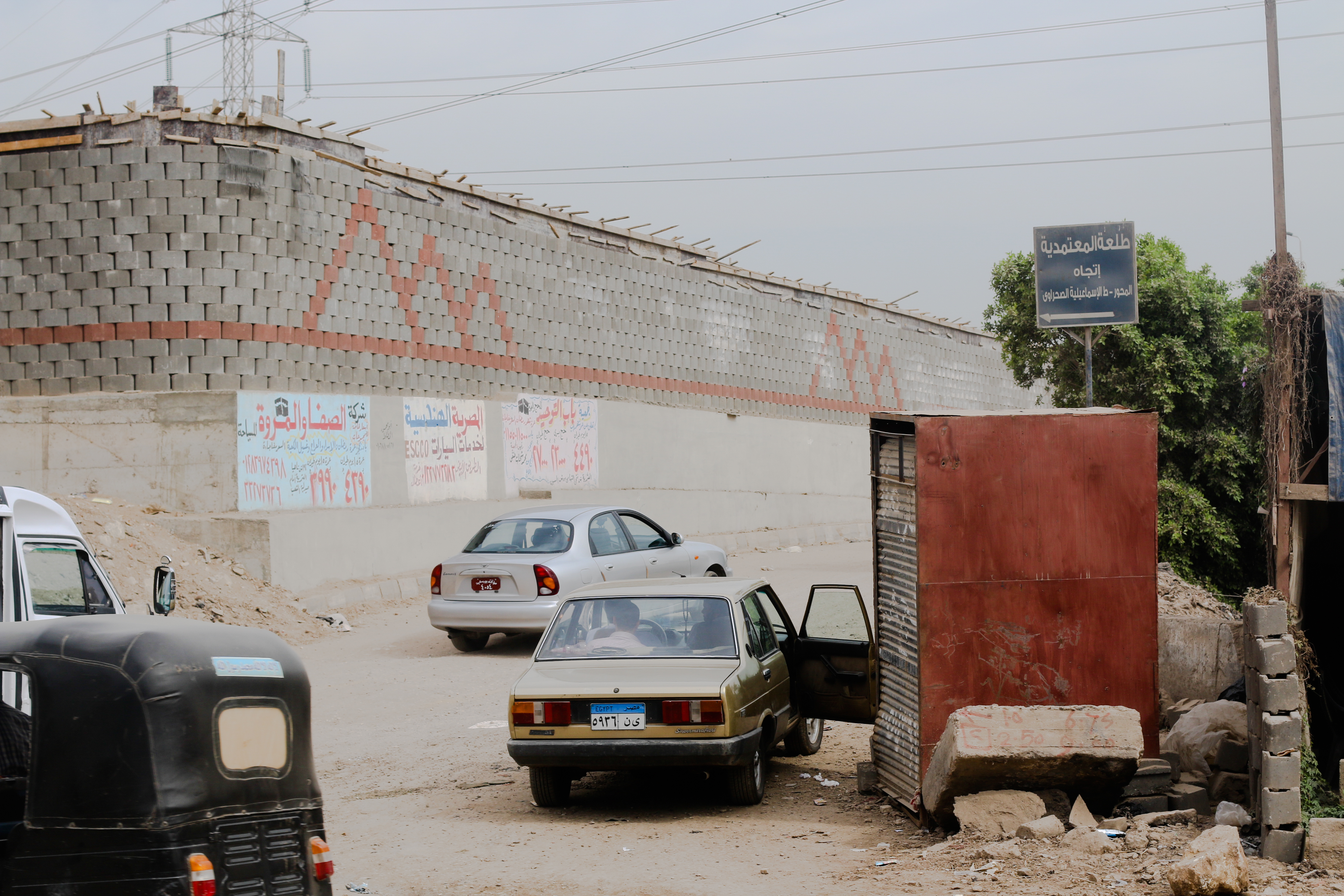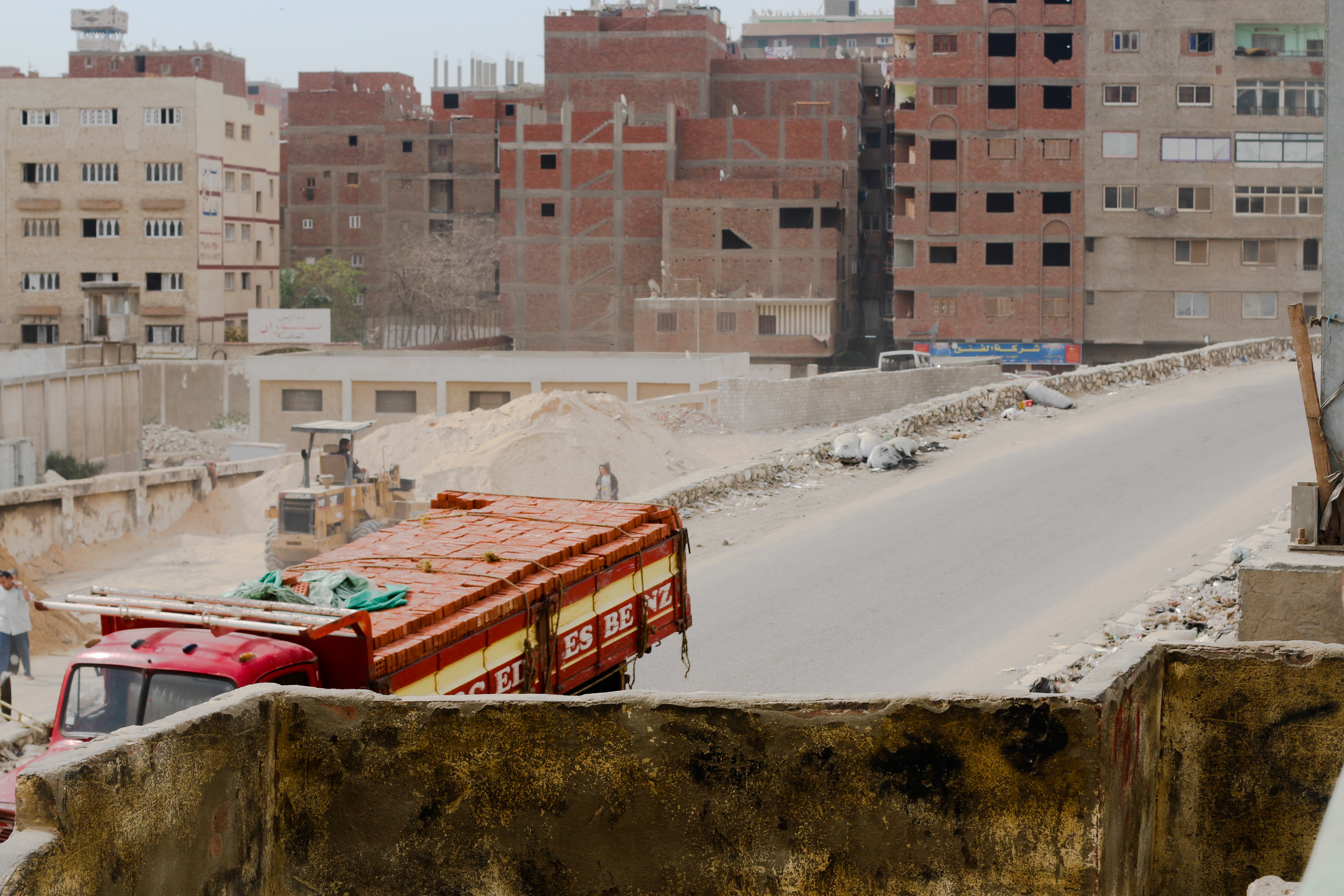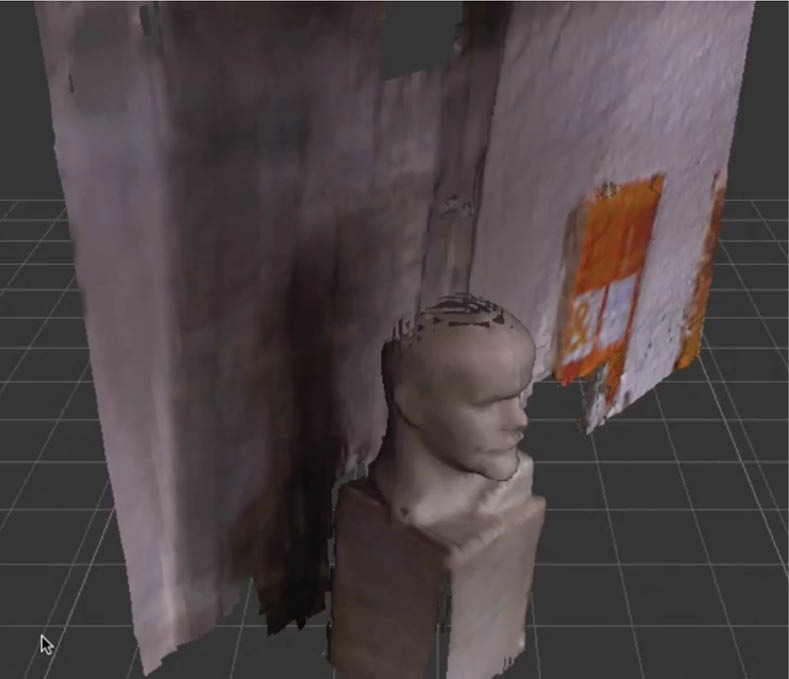
In my workshop participants produced and shared bytes of information that make up traces of zil culture centre designed by vesnin brothers.
using a kinect sensor to scan its interiors, the participants manufactured 3d point cloud representations, and recorded its background noise, the frequencies and vibrations of its technical systems with contact microphones. the research resulted in an online archive, a webpage for dj-ing with spatial and aural records, a columbarium of externalised information.
the focus is on exploring new methodological approaches to the urban by discussing how seeing the city-as-archive, as a method for urban research, may open up for alternative urban imaginaries that investigate what urban space is and means.
using a kinect sensor to scan its interiors, the participants manufactured 3d point cloud representations, and recorded its background noise, the frequencies and vibrations of its technical systems with contact microphones. the research resulted in an online archive, a webpage for dj-ing with spatial and aural records, a columbarium of externalised information.
the focus is on exploring new methodological approaches to the urban by discussing how seeing the city-as-archive, as a method for urban research, may open up for alternative urban imaginaries that investigate what urban space is and means.
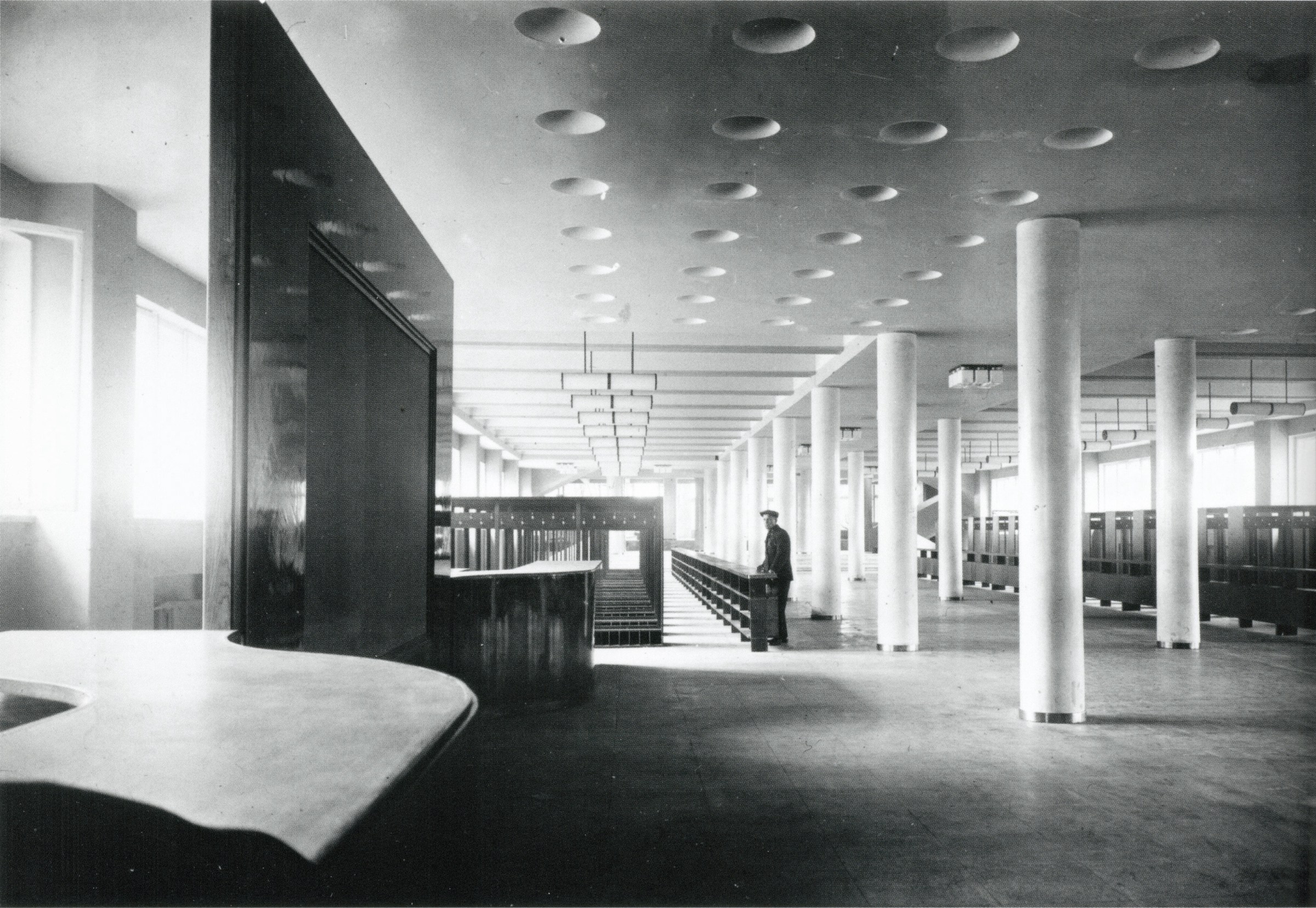
↖ lenin’s bust inside the vesnin brothers’ zil palace of culture in moscow, 2014
↑ open hall inside the vesnin brothers’ zil palace of culture in moscow, 1931
↑ open hall inside the vesnin brothers’ zil palace of culture in moscow, 1931
Teaching Lies
Workshop / Installation
with Jamie Allen, Donato Ricci, Selcuk Artut,
Michael Young, Rebekka Kiesewetter, Benoît Verjat
A School of Schools
4th Istanbul Design Biennial
2018
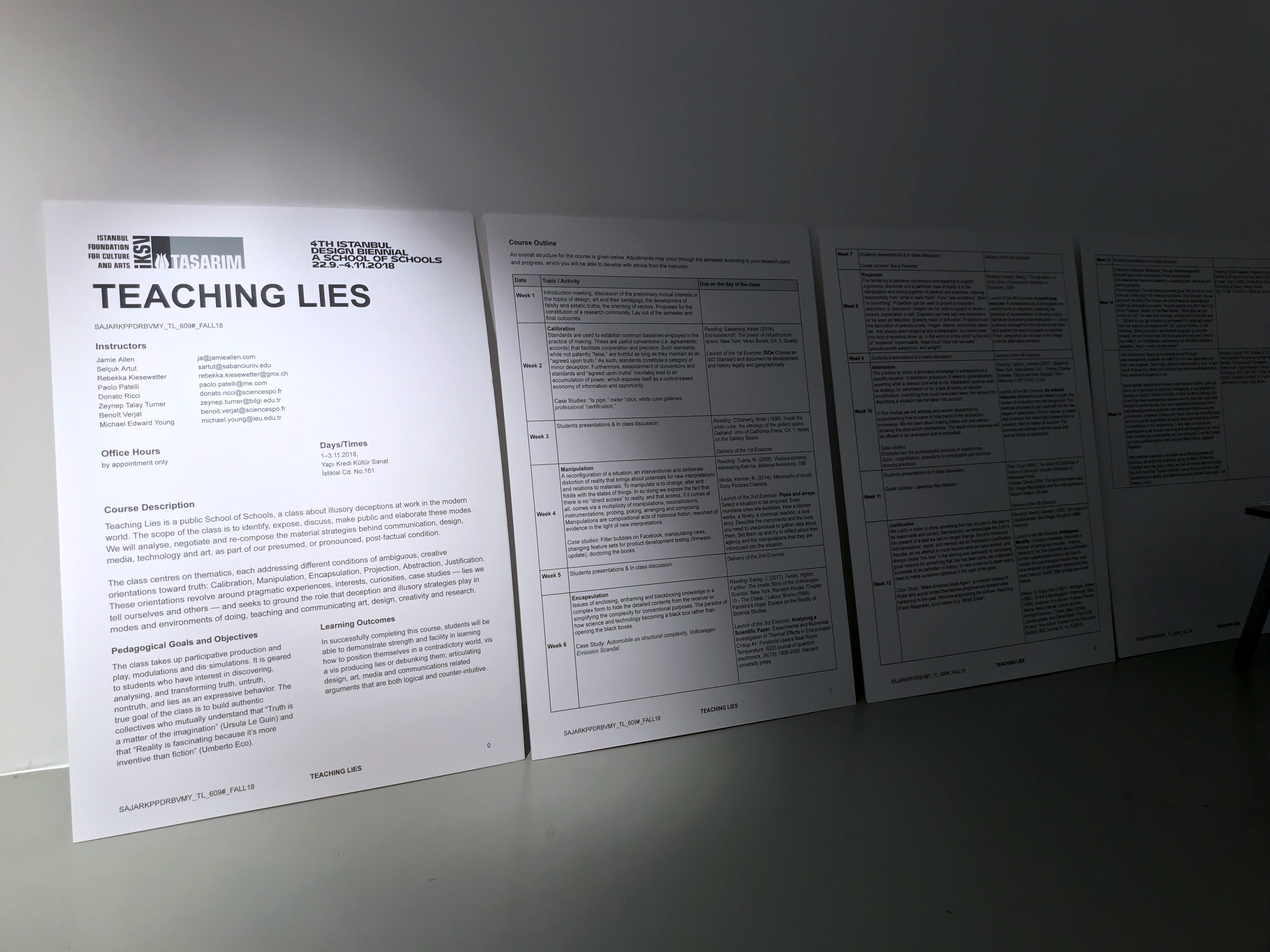
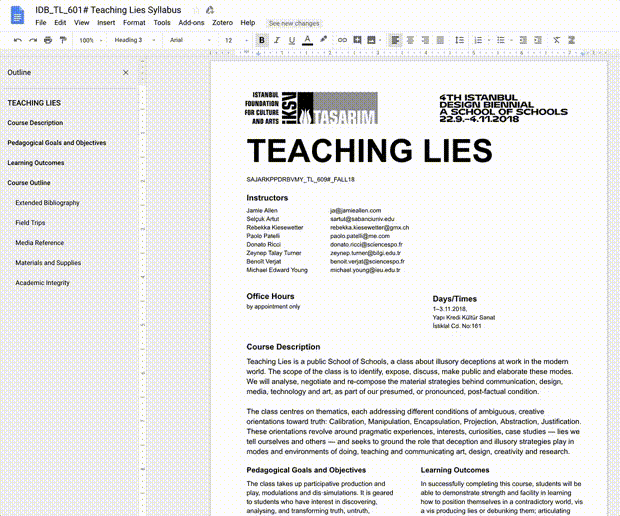

teaching lies is a public school of schools, a workshop about illusory deceptions at work in the designed modern world. its scope is to identify, expose, discuss and make public these modes, through the collaborative writing of a syllabus for a spurious studio-based class. the workshop is aimed at participative production and play, modulations and dissimulations of designed deceptions in pedagogy and beyond.
we seek to analyse, explore and re-compose the rhetorical figures and material strategies behind communication, design, media, technology and art, as part of our pronounced post-factual condition; in a context where terms of art and artifice — like ‘fabulation’ — have become main means of doing art, design and by extension, communication, politics and life.
the three days workshop is developed around several thematics addressing different fabulative tropes, such as concealing (secret origins, hiding, shadowing, masks); camouflage (adversarial, being unmappable, decoys, hiding in plain sight); fabulation (fictionalisation, re-narration, imaginaries); reduction (simplification, rules of thumb, common practice, ‘just enough’); misappropriation (metaphors, anecdotes, projection); misdirection (look over here! fakes, hoaxes, slight-of-hand, puppets, apocrypha, data derives).
we seek to analyse, explore and re-compose the rhetorical figures and material strategies behind communication, design, media, technology and art, as part of our pronounced post-factual condition; in a context where terms of art and artifice — like ‘fabulation’ — have become main means of doing art, design and by extension, communication, politics and life.
the three days workshop is developed around several thematics addressing different fabulative tropes, such as concealing (secret origins, hiding, shadowing, masks); camouflage (adversarial, being unmappable, decoys, hiding in plain sight); fabulation (fictionalisation, re-narration, imaginaries); reduction (simplification, rules of thumb, common practice, ‘just enough’); misappropriation (metaphors, anecdotes, projection); misdirection (look over here! fakes, hoaxes, slight-of-hand, puppets, apocrypha, data derives).
Workshop / 24h Exhibition
with Cosimo Bizzarri, Giuditta Vendrame, Ruggero Castagnola
XYZ Lab
Castrignano de’ Greci
2014
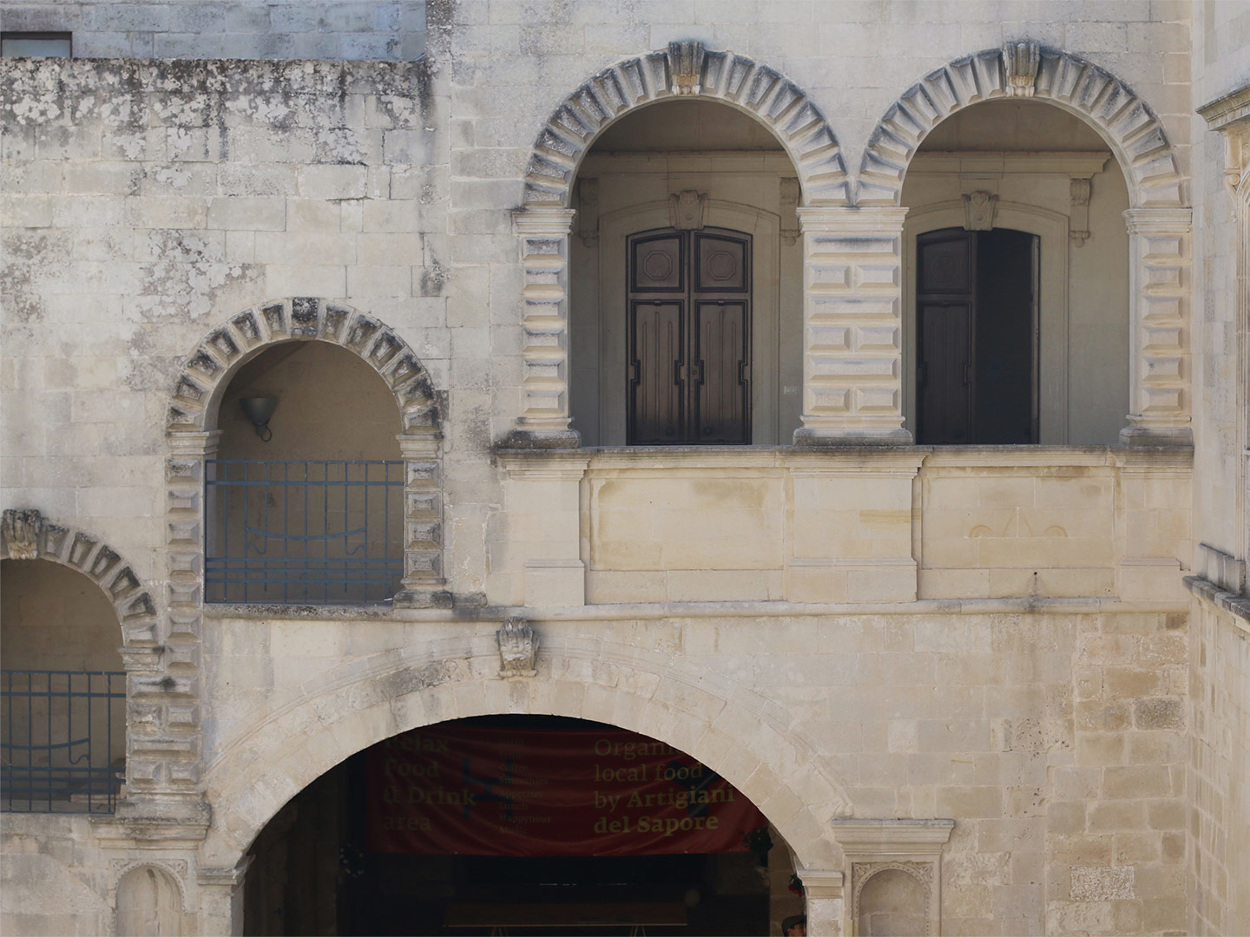
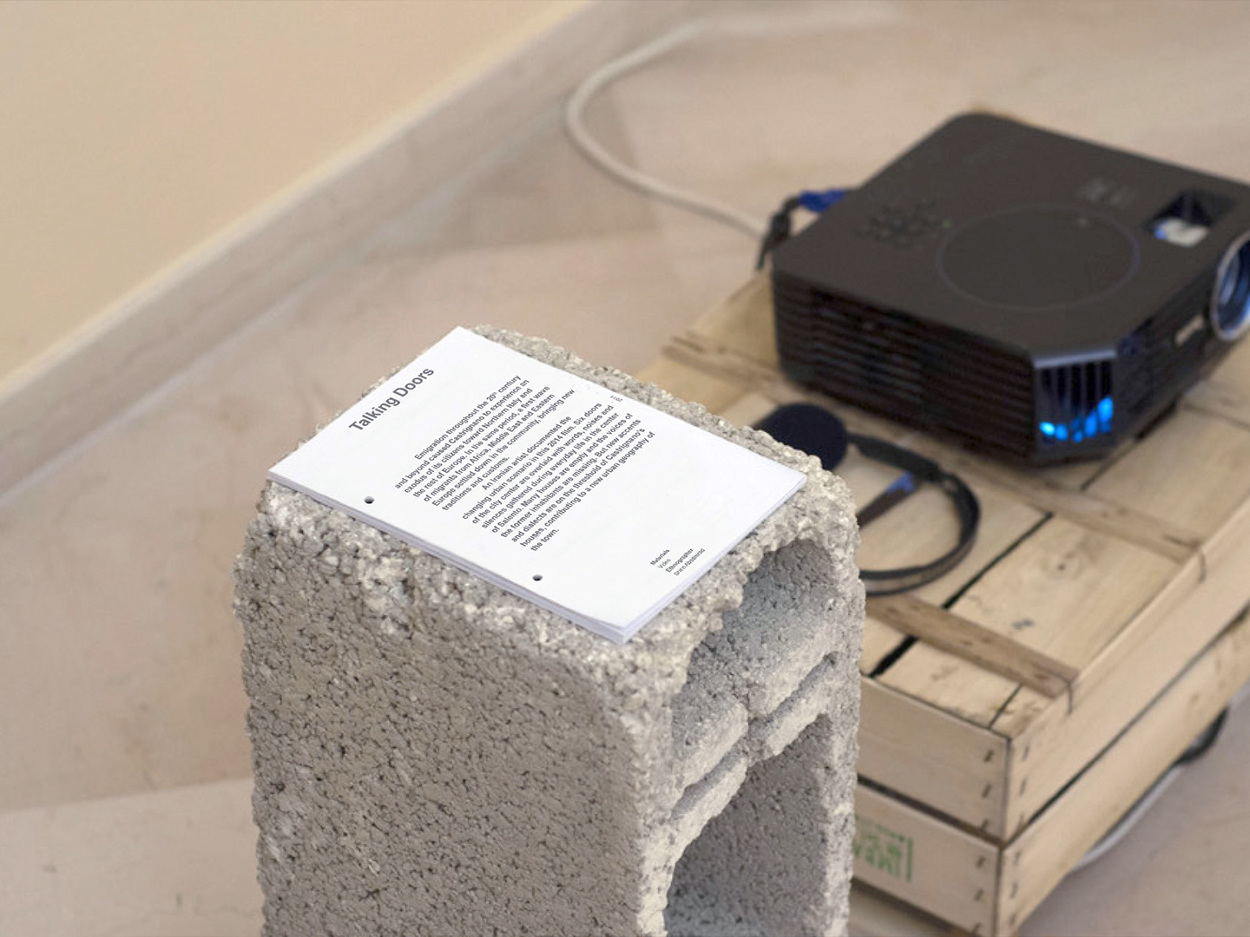
The Kastrignàn Ethnographic Museum of Pasts and Futures houses a collection of about 30 objects and artifacts that tell the pasts, presents and futures, both likely and unlikely, of castrignano de’ greci.
The objects exhibited in Kastrignàna were collected, imagined and built at XYZ Lab, a two-week workshop that took place in the baronial castle of castrignano de’ greci, italy.
Castrignano is situated in grecìa salentina, a unique area of southern italy where griko (a variant of greek) is spoken. The museum identity focuses on the intersection of italian and greek language, using the character “kappa” otherwise known as the letter k.
The museum opened for 24 hours on the 31st of july 2014.
The objects exhibited in Kastrignàna were collected, imagined and built at XYZ Lab, a two-week workshop that took place in the baronial castle of castrignano de’ greci, italy.
Castrignano is situated in grecìa salentina, a unique area of southern italy where griko (a variant of greek) is spoken. The museum identity focuses on the intersection of italian and greek language, using the character “kappa” otherwise known as the letter k.
The museum opened for 24 hours on the 31st of july 2014.
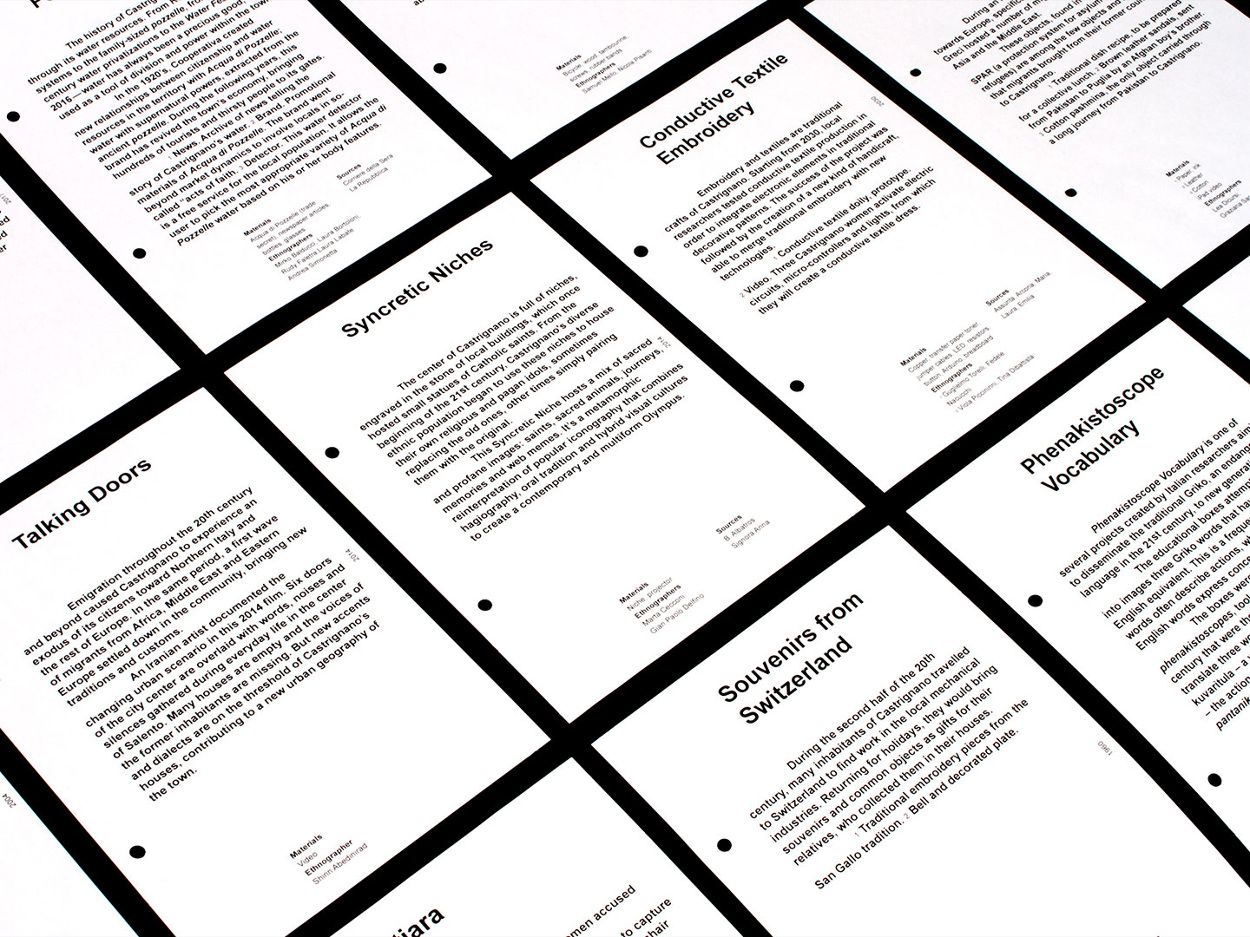
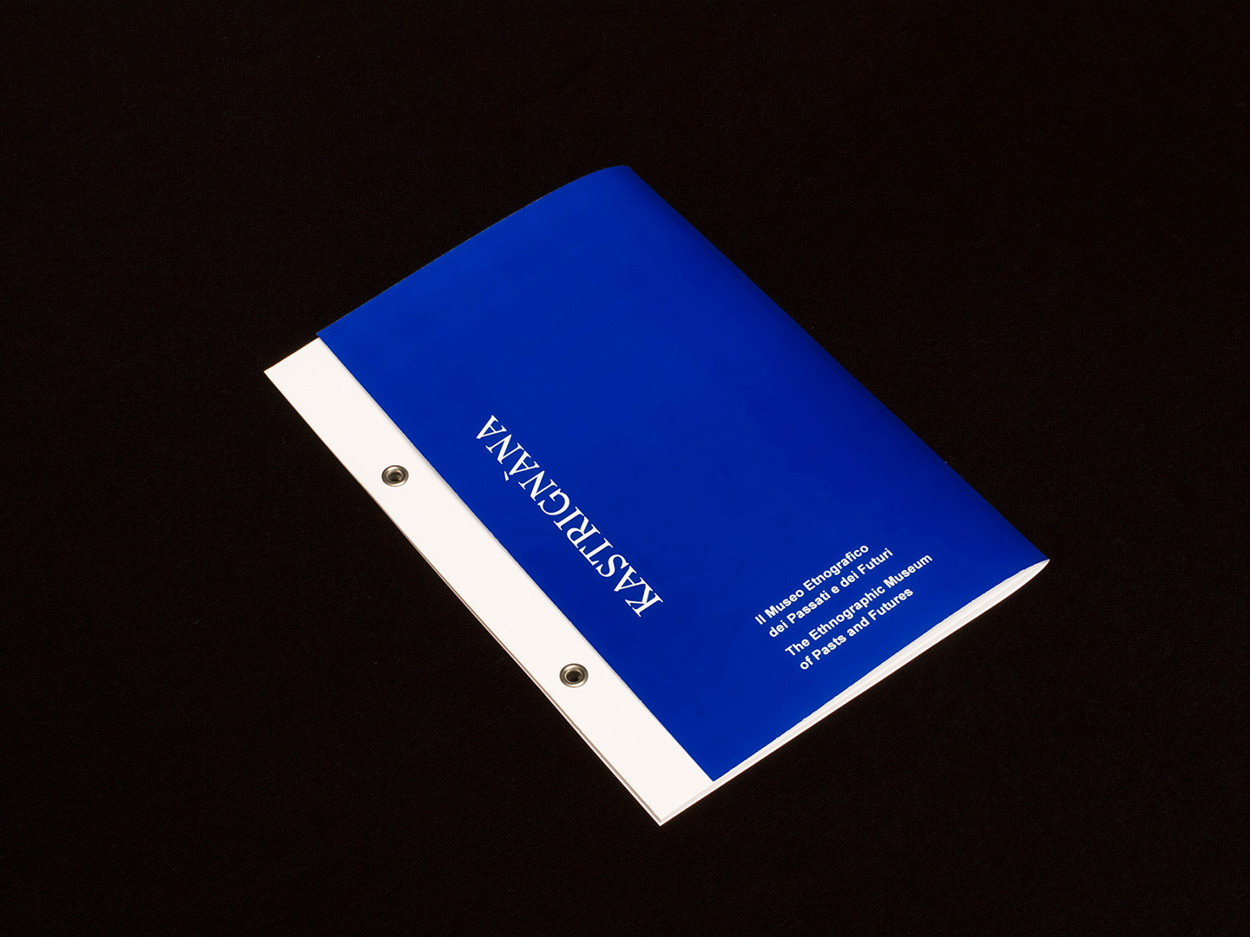
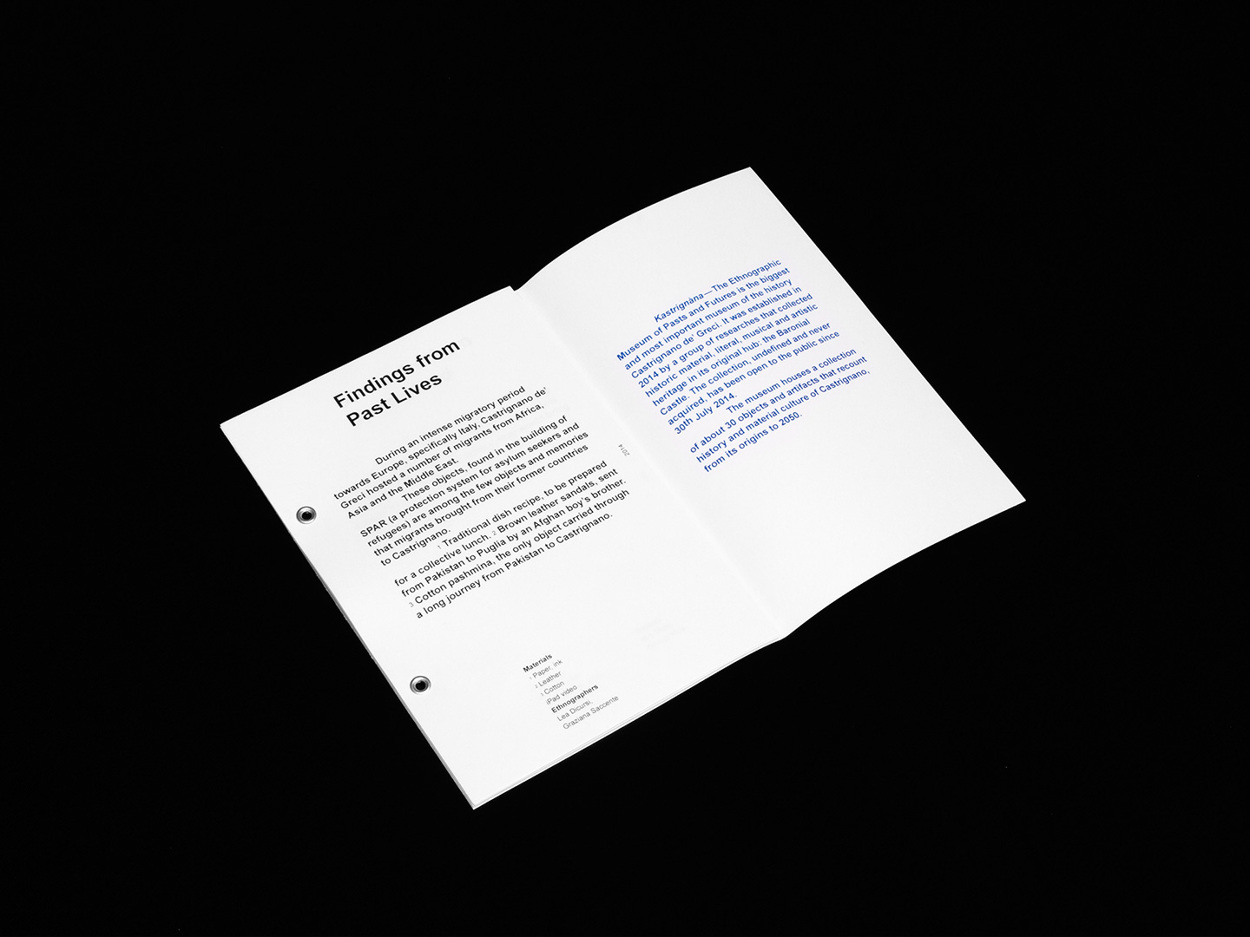
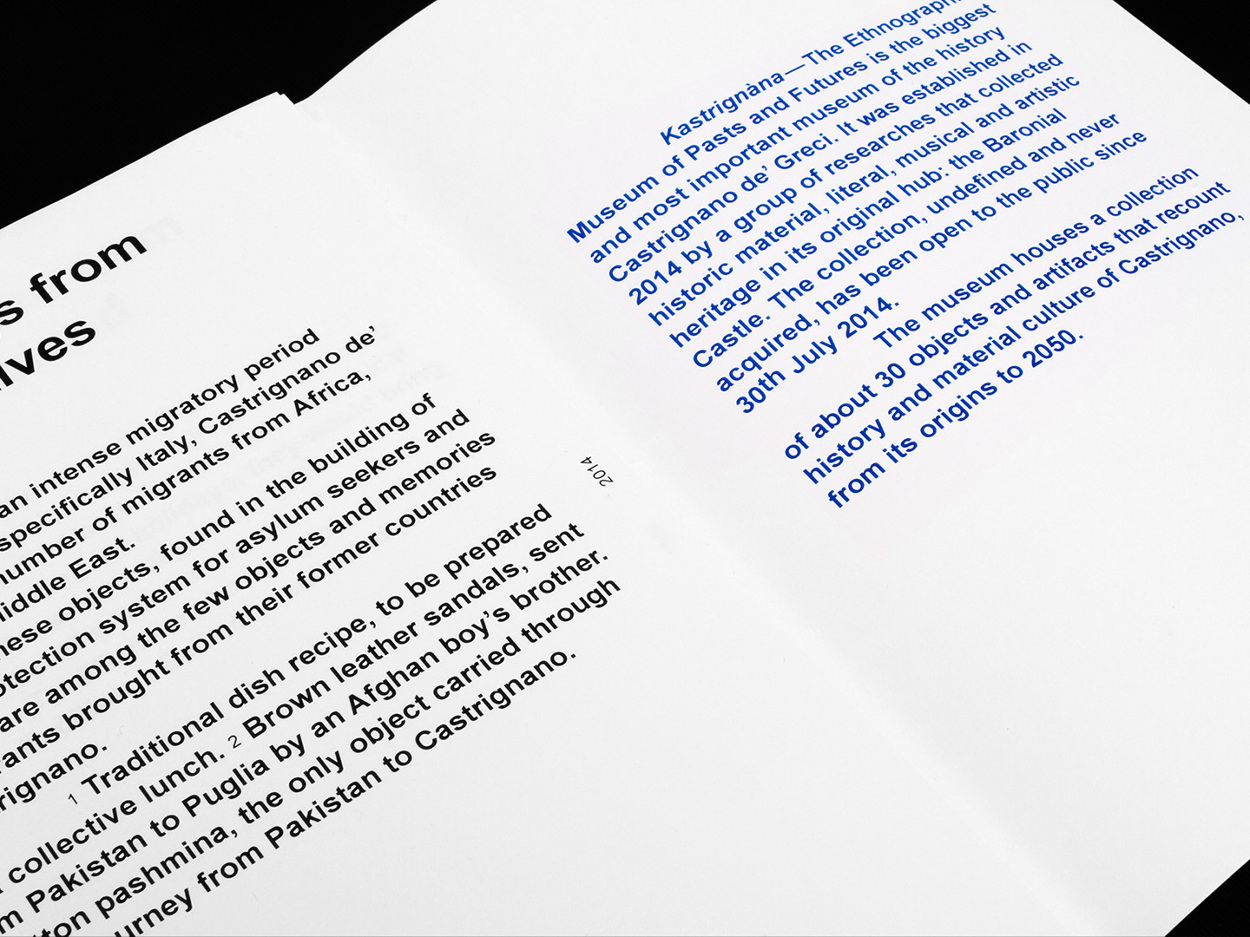

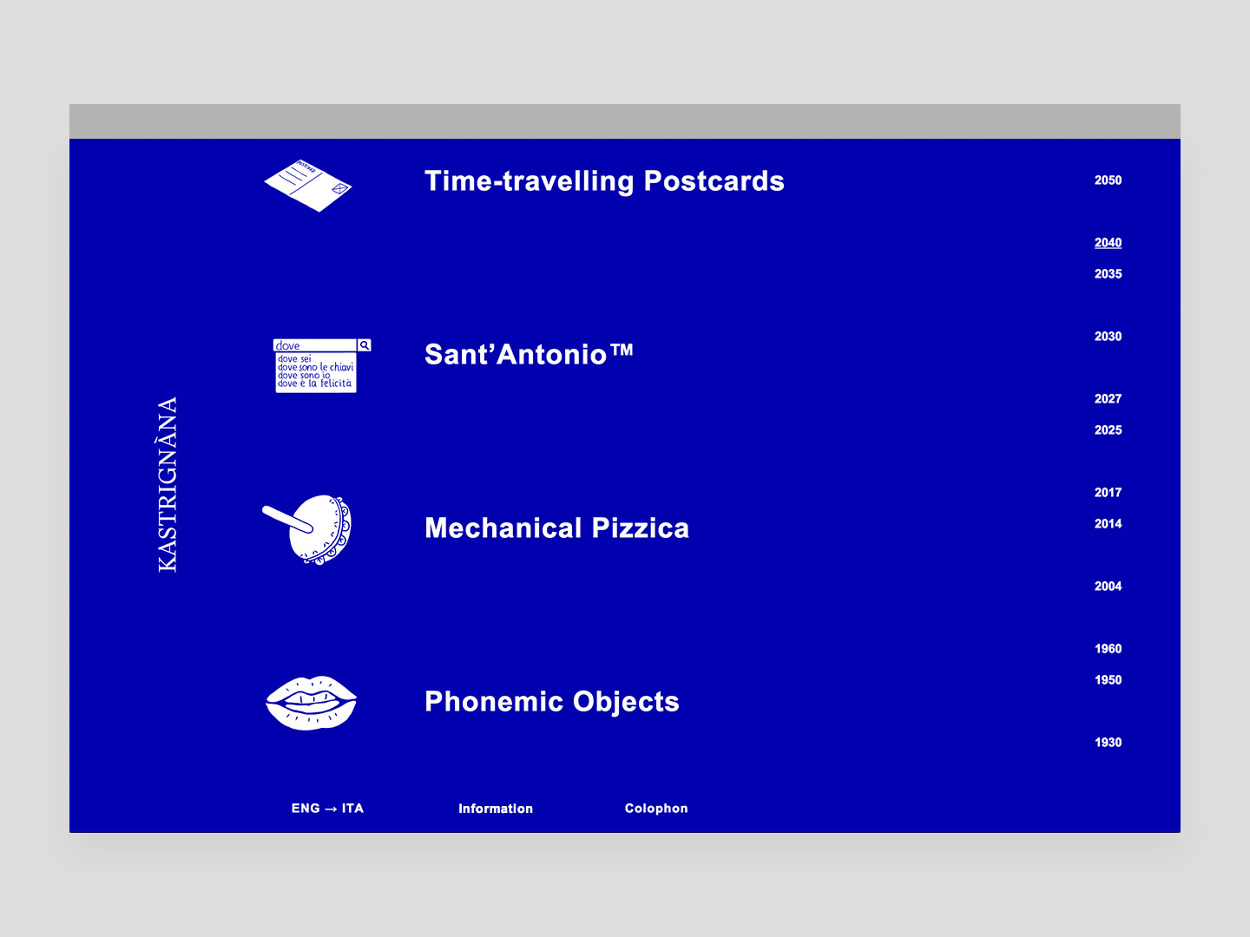

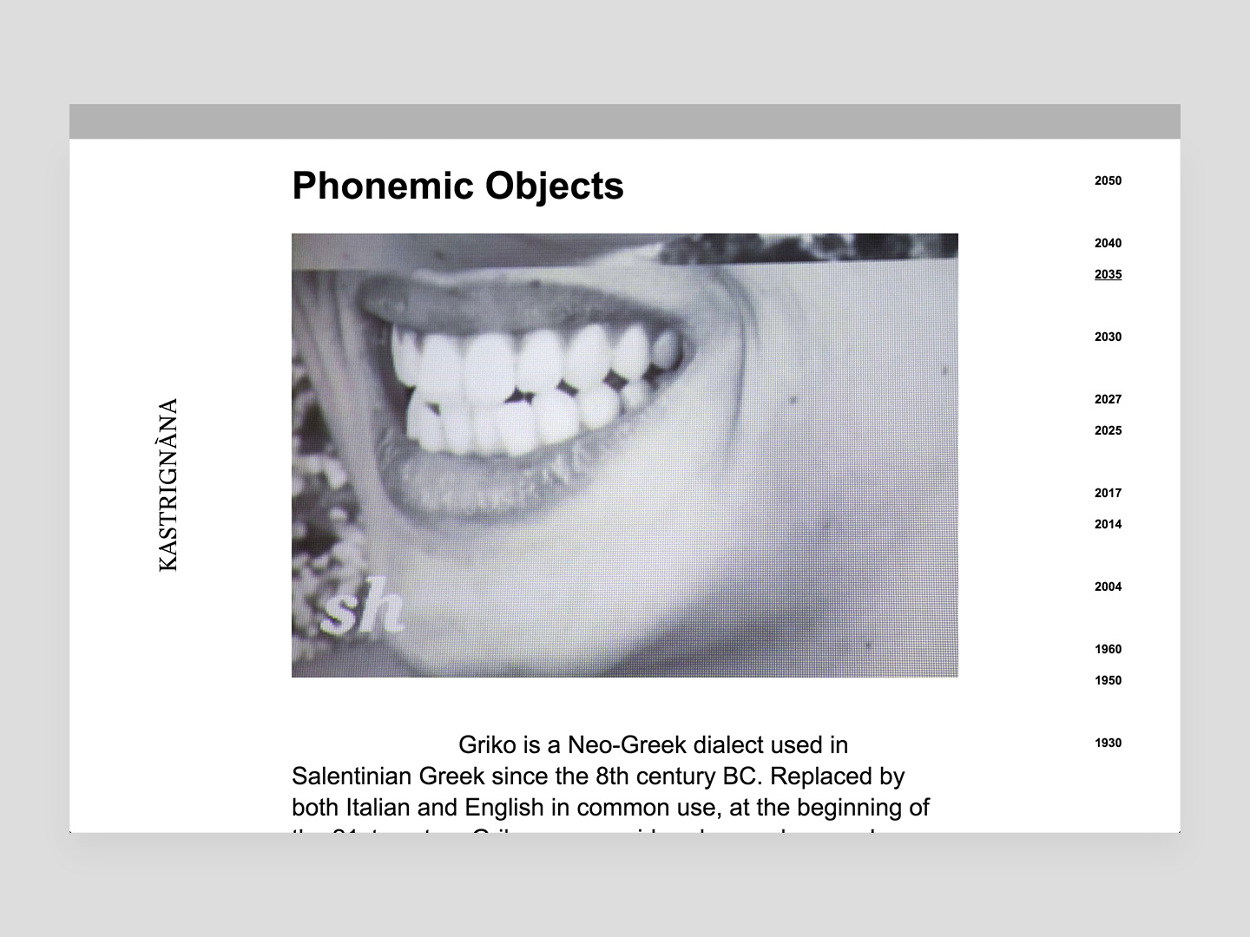
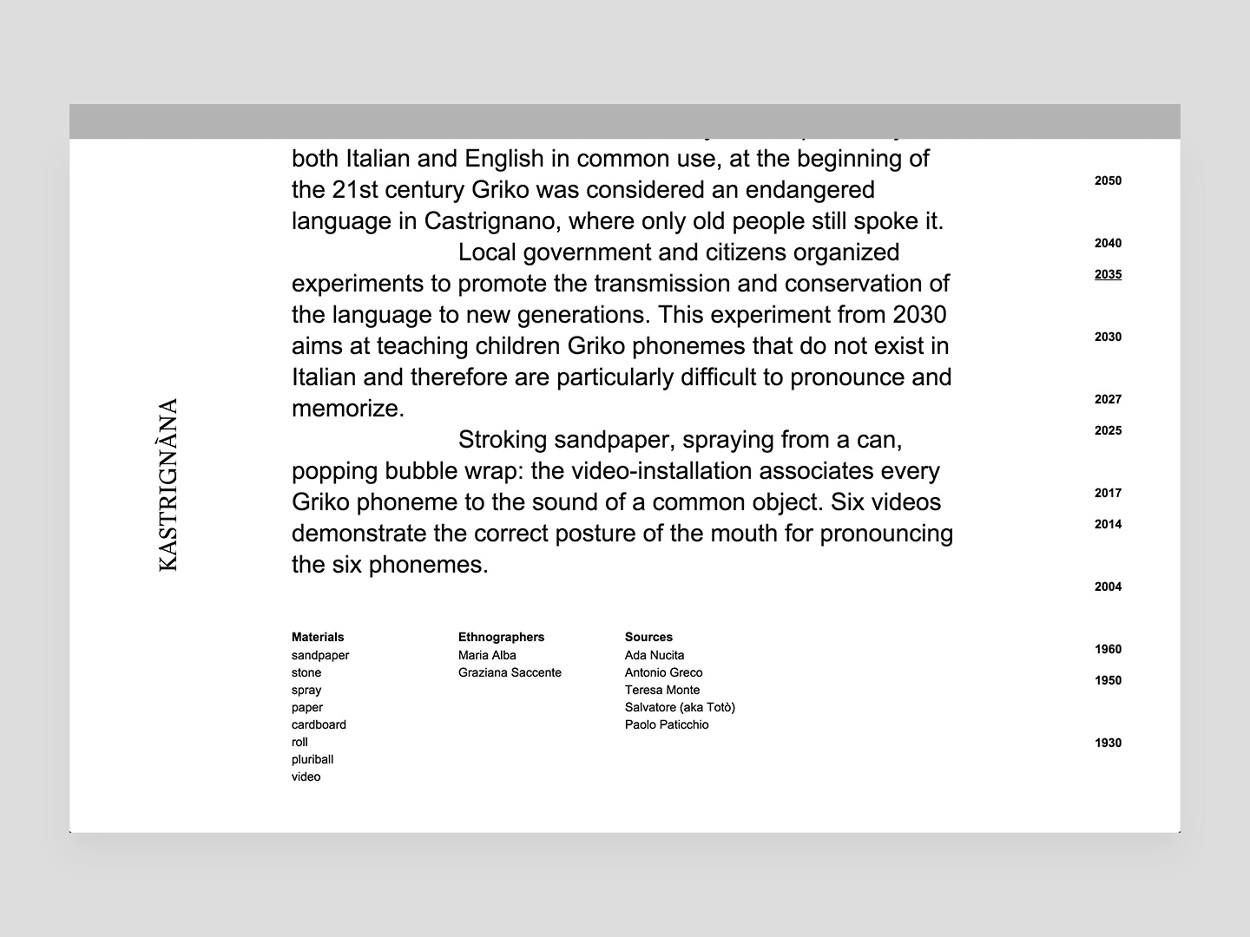
editors: cosimo bizzarri, paolo patelli
design: jacopo atzori, aaron gillett
development: ruggero castagnola
Workshop / Public Intervention
2014
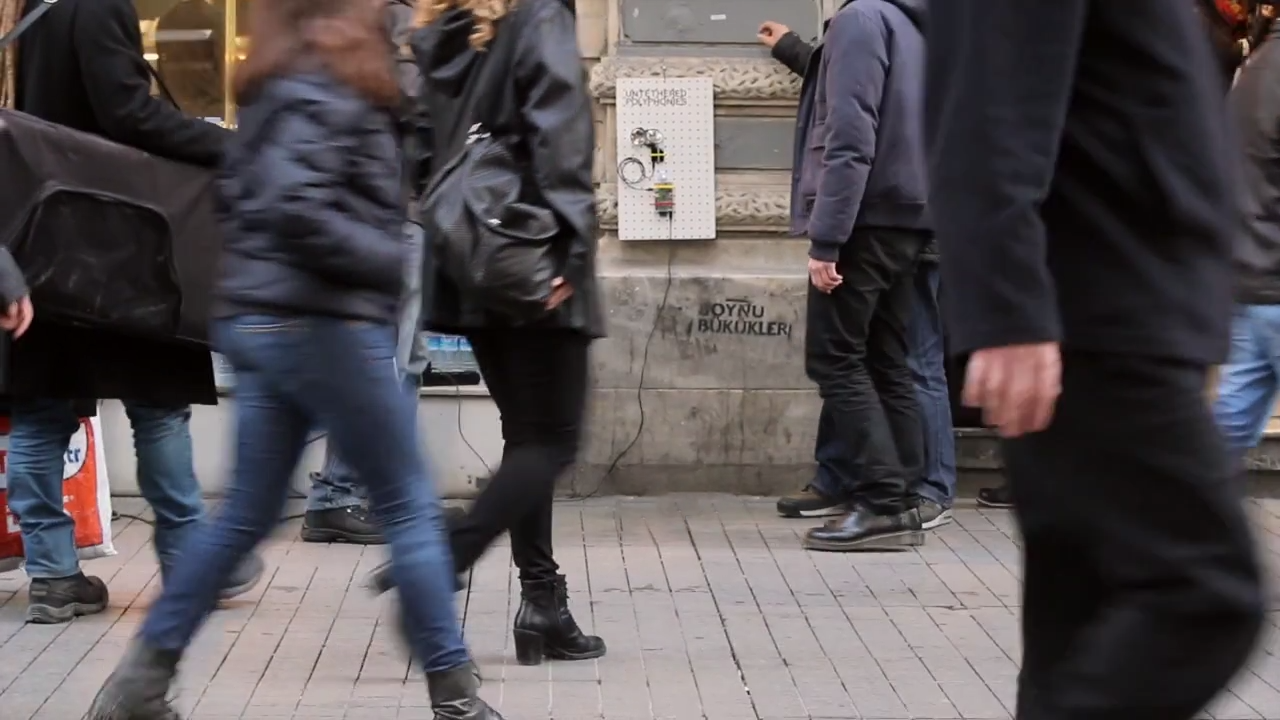
Global Tools at SALT offers three workshops on construction, communication and survival, all critical topics within the multidisciplinary experimental program of design education founded in italy in 1973.
While current discourses around urbanism and communication seem largely concerned with efficiency and optimality of performance, during the workshop, we will explore alternative narratives between the street and media technology. we will try to challenge the vision of a top-down, all-sensing city of the future. we will look for discourses which are lived in the mobility of perceptions, we will decode the polyphonic voices which are interwoven between the city and the social web. activists, artists, and designers will take the place of the technocrati-elite – and the security agency – in a sort of group therapy, as they manipulate data and infrastructure to craft escape plans for the medium and its users. we will explore residual degrees of freedom from inside the architecture of social media, appropriating commercial tools, subverting their inherent logic, filters and controls. participants will tinker with a “decoding toolkit” - pieces of software installed on raspberry pi boards, which harvest geo-localized content from twitter, manipulate text, produce audio. the transformation of data flows into fully visible (or better: audible) agents provides a possible model for opening up to new forms of civic and aesthetic engagement with communications and the city.
While current discourses around urbanism and communication seem largely concerned with efficiency and optimality of performance, during the workshop, we will explore alternative narratives between the street and media technology. we will try to challenge the vision of a top-down, all-sensing city of the future. we will look for discourses which are lived in the mobility of perceptions, we will decode the polyphonic voices which are interwoven between the city and the social web. activists, artists, and designers will take the place of the technocrati-elite – and the security agency – in a sort of group therapy, as they manipulate data and infrastructure to craft escape plans for the medium and its users. we will explore residual degrees of freedom from inside the architecture of social media, appropriating commercial tools, subverting their inherent logic, filters and controls. participants will tinker with a “decoding toolkit” - pieces of software installed on raspberry pi boards, which harvest geo-localized content from twitter, manipulate text, produce audio. the transformation of data flows into fully visible (or better: audible) agents provides a possible model for opening up to new forms of civic and aesthetic engagement with communications and the city.
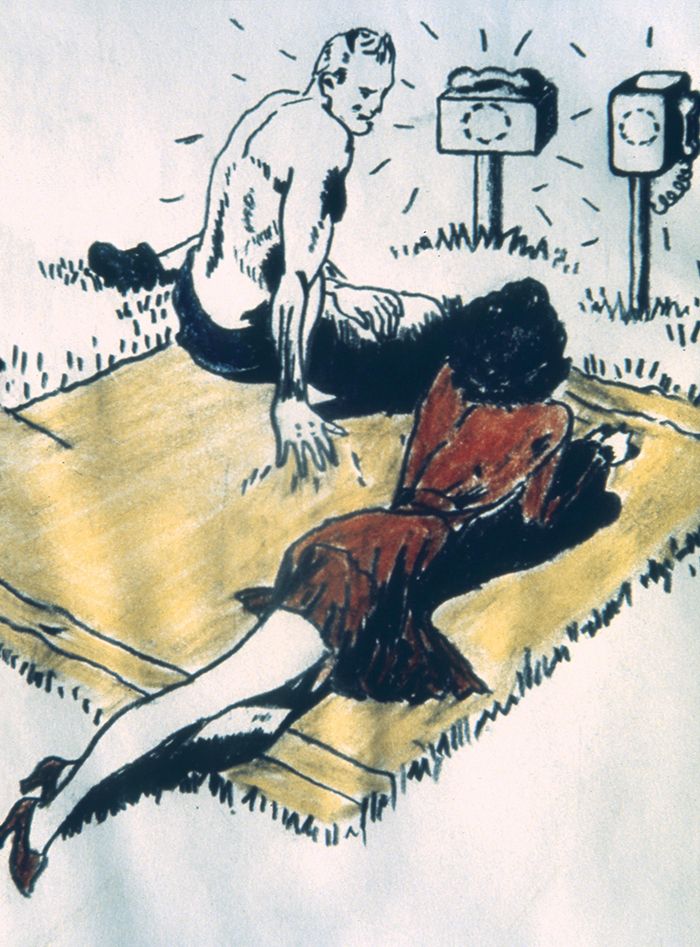
Curated by Silvia Franceschini and Valerio Borgonuovo
Produzione industriale e creatività individuale. Scena 7 (1973) Courtesy Lapo Binazzi
Produzione industriale e creatività individuale. Scena 7 (1973) Courtesy Lapo Binazzi
Ard el—Lewa: Inverse Infrastructures, Facts and Fictions
Research / Video / Workshop
Artellewa art Space
Cairo (Egypt)
Uncube
Failed States
2014

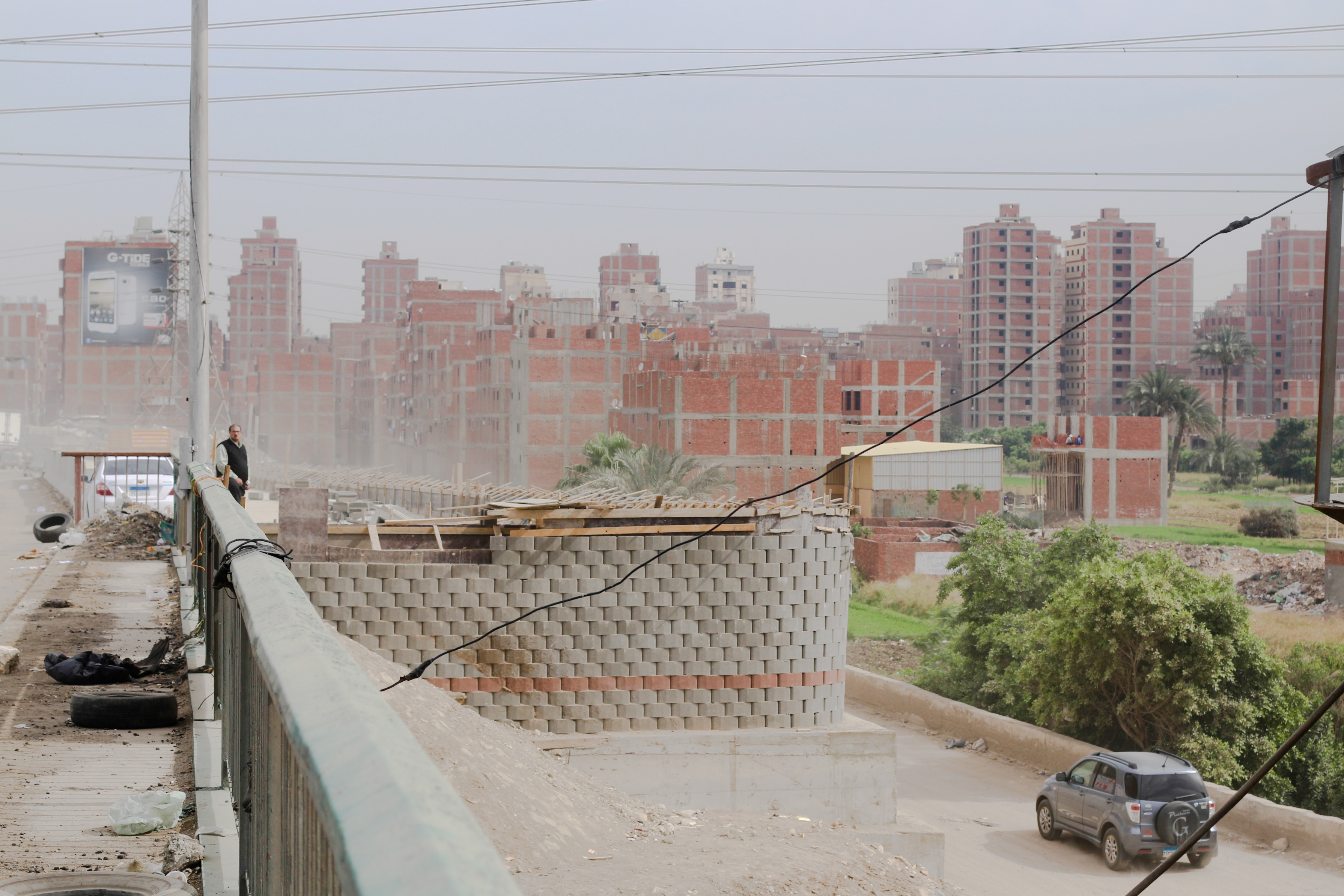
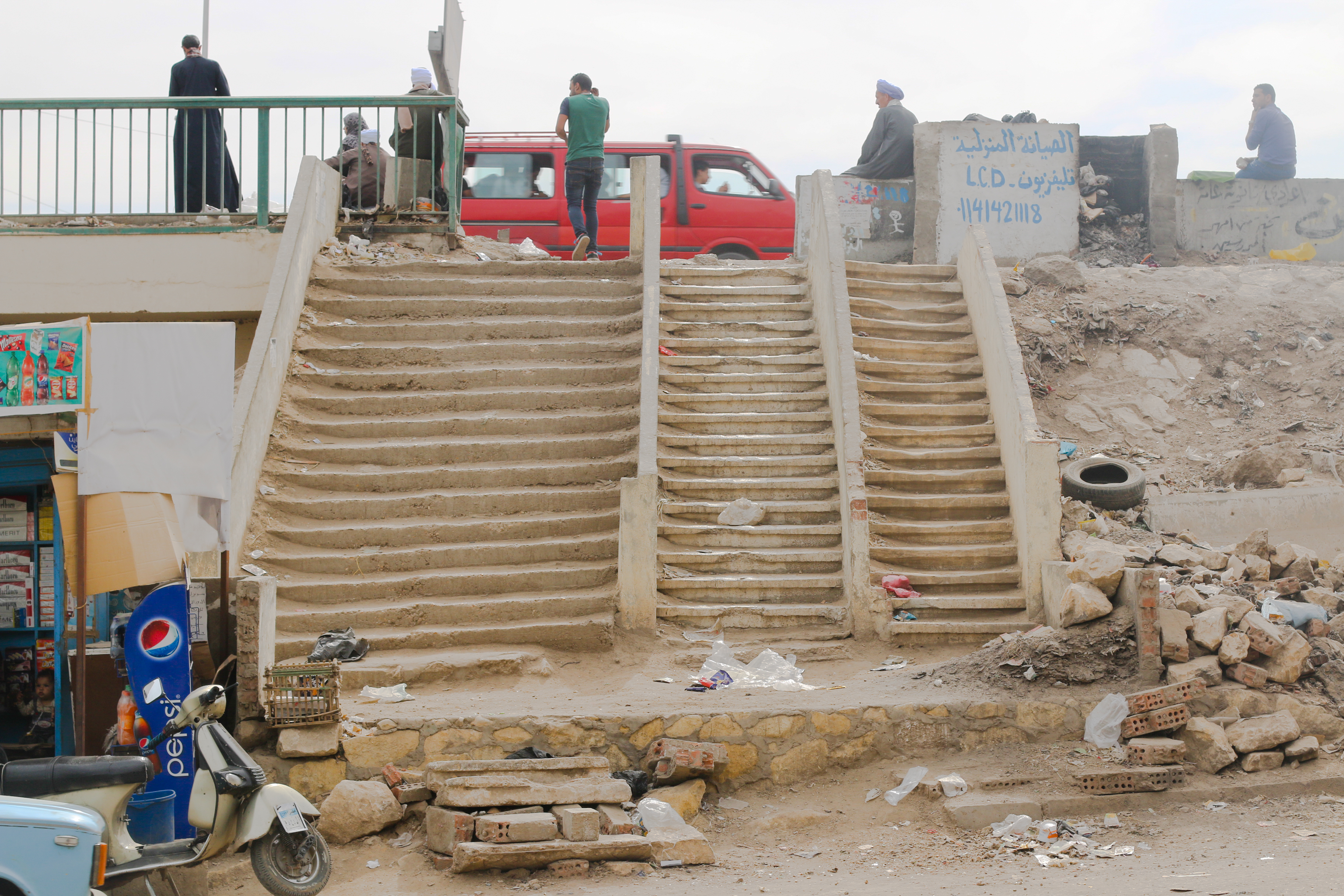
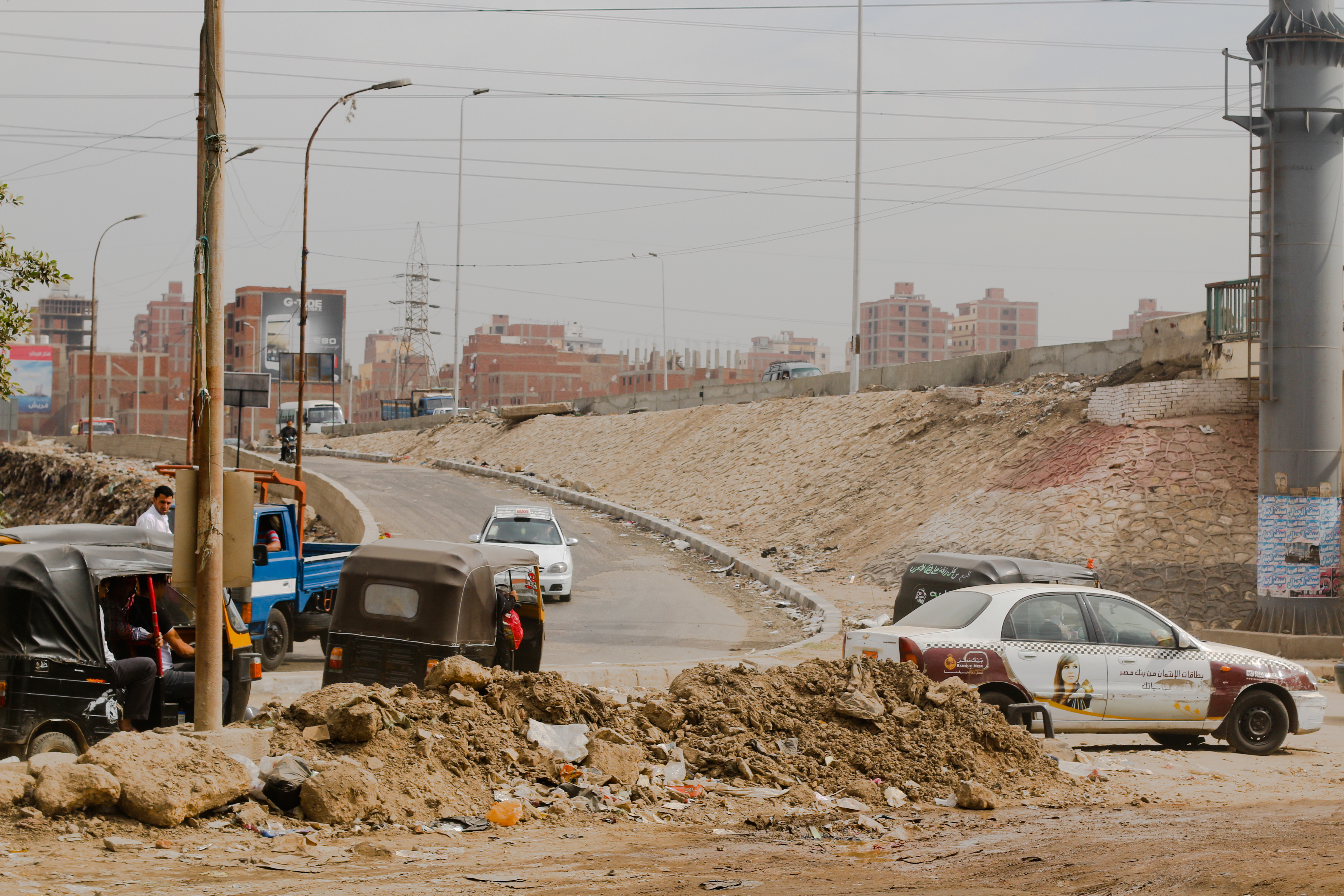
In 2011, in the aftermath of the Egyptian revolution, a community in cairo built itself four access ramps to the city’s 45-mile ring road. Living in an informal neighbourhood, residents of Al-Mu’tamidiya had long been bypassed and so they took matters into their own hands. I spent one month in an independent art space in Ard el-Lewa in 2014 to document this piece of infrastructure, the relations that enabled its construction, and the relations afforded by the process.
Later on, we hosted two workshops with local residents, students of architecture, law, engineers, making use of what we had found to imagine future infrastructural conditions. We used visual and worldbuilding methods to craft a collaborative narrative interplay between reality and fiction, developing a critical take on the idea of reverse infrastructure and user-generated city. That the residents achieved something incredible, in fact, could not hide the concurrent absolute failure of public responsibility.
Later on, we hosted two workshops with local residents, students of architecture, law, engineers, making use of what we had found to imagine future infrastructural conditions. We used visual and worldbuilding methods to craft a collaborative narrative interplay between reality and fiction, developing a critical take on the idea of reverse infrastructure and user-generated city. That the residents achieved something incredible, in fact, could not hide the concurrent absolute failure of public responsibility.

